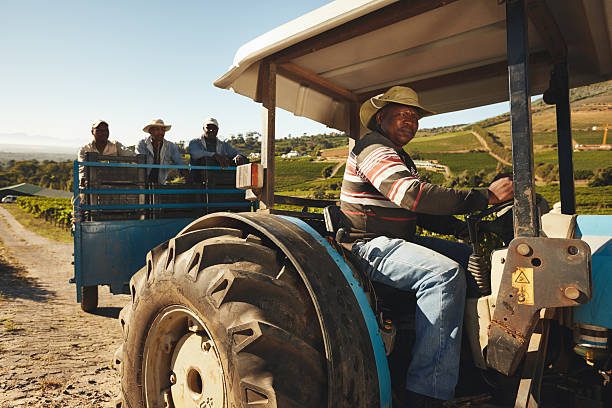INDUSTRY UPDATES
February 23, 2023
Supporting The Future Of Black History In The Hemp Industry

This Black History Month, we feel it’s important to remember the work that still needs to be done in order to create an inclusive, equitable hemp industry for all, especially when it comes to the systemic discrimination many Black Americans continue to face today as a result of our past.
A recent NPR analysis of USDA data found that Black farmers receive a disproportionately low share of direct loans given to farmers leaving them behind in a program that is important to their livelihoods. In 2021, the USDA granted loans to only 37 percent of Black applicants in one program that helps farmers pay for land, equipment and repairs but accepted 71 percent of applications from white farmers, according to a POLITICO analysis. In a grant program to help producers weather the coronavirus pandemic, farmers of color received less than one percent of the payments even though they are five percent of all U.S. farmers.
These are just a few examples of why it’s critical to establish programs and promote opportunities that empower underserved producers and farmers of color, particularly in the hemp industry that has a history rooted in the enslavement of Black Americans. It’s time to take action by acknowledging the continued economic disparities and taking steps to address inequities and injustices through purpose-driven initiatives.
Founded in 2020 with a mission of removing barriers to success in the hemp industry, the U.S. Hemp Roundtable Minority Empowerment Committee (MEC) is dedicated to working with the hemp industry to determine how to better serve Black, Indigenous, and Immigrant producers with resources, tools and support for a more equitable and inclusive market.
Just last year, the Roundtable helped promote an industry-supported USDA climate-smart commodities project at Tennessee State University, one of the nation’s Historically Black Colleges and Universities (HBCUs), which received nearly $5 million from the USDA for sustainable hemp fiber research and to support underserved producers. We are proud to have assisted with this grant effort by organizing work sessions and strategy development, and by building in a project to establish a sustainability certification program administered by the U.S. Hemp Authority.
The USHR is also advocating in the 2023 Farm Bill to increase the nation’s USDA Centers of Excellence at HBCUs from six to ten, so that these critical institutions can partner with the hemp industry to promote expanded hemp research and development for BIPOC communities. We are also urging for the repeal of the hemp felon ban which prohibits convicted drug felons who have completed their sentences from participating in hemp production. The hemp felon ban perpetuates disenfranchisement and social injustice as many drug-related convictions, particularly those involving marijuana, have often been racially targeted. We will be seeking your advocacy in the coming weeks as we introduce campaigns to promote both of these legislative initiatives.
The U.S. Hemp Roundtable would like to encourage all Hemp Supporters to get educated and involved in work to promote the establishment of programs that empower underserved producers and farmers of color to create an equitable hemp and greater agriculture industry for all.
Learn more about the U.S. Hemp Roundtable Minority Empowerment Committee!
Thank you to Let’s Talk Hemp for highlighting Black leaders in hemp!
https://letstalkhemp.com/honoring-black-leaders-in-the-hemp-industry/
In Warren County, North Carolina, a Black farmer is growing industrial hemp to help his century-old farm thrive for at least another 100 years. Watch this Patagonia short film to learn more!
